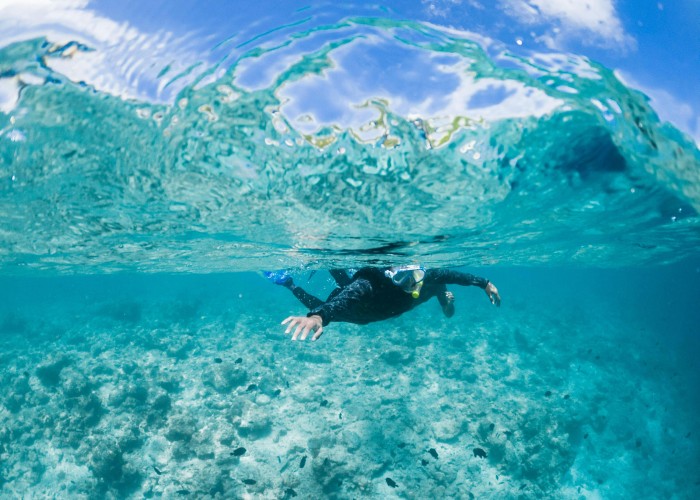The Maldives, a collection of over 1,000 islands in the Indian Ocean, is a dream destination for scuba diving enthusiasts. Known for its crystal-clear waters, colorful coral reefs, and abundant marine life, this island nation offers some of the most unforgettable underwater experiences in the world. Whether you are a beginner or an advanced diver, the Maldives has something to offer for everyone. Scuba Diving in the Maldives.
In this guide, we’ll explore the best scuba diving spots, the types of marine life you can encounter, the best time to visit, and helpful tips for making the most of your underwater adventure.
Why Choose the Maldives for Scuba Diving?
The Maldives is world-renowned for diving due to its unique underwater ecosystem. Located in the heart of the Indian Ocean, the islands are surrounded by warm waters, making them an ideal environment for coral reefs and marine biodiversity.
Key reasons why divers love the Maldives:
- Warm tropical waters: Average temperatures range between 27°C to 30°C year-round.
- Exceptional visibility: Divers can often see up to 30 meters underwater.
- Rich marine biodiversity: Over 2,000 species of fish and more than 200 species of coral.
- Unique dive experiences: From drift dives to night dives and encounters with whale sharks.
Best Time for Scuba Diving in the Maldives
The Maldives has a tropical climate, and diving conditions vary depending on the monsoon seasons.
- November to April: Best time for scuba diving with calm seas, dry weather, and excellent visibility.
- May to October: Slightly rougher seas due to the southwest monsoon, but this period is known for manta ray and whale shark sightings.
No matter the season, scuba diving in the Maldives offers unforgettable experiences.
Top Scuba Diving Spots in the Maldives
The Maldives is divided into atolls, each offering unique diving opportunities. Here are some of the most popular spots:
1. Ari Atoll
- Known for whale shark sightings.
- Rich coral formations and colorful reef fish.
- Popular dive sites include Maaya Thila and Broken Rock.
2. North Male Atoll
- Easy access from the capital city, Malé.
- Great for beginners and advanced divers.
- Known for shark and manta ray encounters.
3. South Male Atoll
- Offers stronger currents, ideal for drift dives.
- Exciting dive sites like Kandooma Thila.
4. Baa Atoll (UNESCO Biosphere Reserve)
- Famous for Hanifaru Bay, a hotspot for manta rays.
- A must-visit for underwater photography lovers.
5. Vaavu Atoll
- Known for channel dives and schooling fish.
- Night diving at Alimatha Jetty is a highlight.
6. Lhaviyani Atoll
- Wreck diving opportunities.
- Rich coral reefs with eagle rays and turtles.
Marine Life You’ll Encounter
The Maldives is home to one of the richest marine ecosystems in the world. While diving, you can expect to see:
- Whale sharks – the gentle giants of the ocean.
- Manta rays – often seen gliding gracefully through the water.
- Reef sharks – including grey reef and white-tip sharks.
- Turtles – hawksbill and green turtles are common.
- Colorful reef fish – from clownfish to parrotfish.
- Coral gardens – stunning displays of hard and soft corals. Scuba Diving in the Maldives.
Scuba Diving Levels in the Maldives
No matter your experience level, the Maldives has dive sites suited for you:
- Beginners: Calm lagoons and shallow reefs with minimal currents.
- Intermediate divers: Drift dives with moderate currents.
- Advanced divers: Deep dives, wrecks, and strong current channels.
Most resorts and dive centers offer training courses, making it easy for first-timers to learn and earn certifications.
Essential Tips for Scuba Diving in the Maldives
- Choose the right season: Plan based on what you want to see, such as manta rays or whale sharks.
- Consider a liveaboard trip: Staying on a diving boat allows you to explore multiple atolls.
- Check dive certifications: Ensure your certification matches the dive site requirements.
- Pack wisely: Bring reef-safe sunscreen, dive logbook, and personal equipment if preferred.
- Respect marine life: Do not touch corals or chase animals.
- Stay hydrated: Diving in warm climates can dehydrate you quickly.
Accommodation Options for Divers
Divers can choose between staying at:
- Resort islands: Luxury resorts often have in-house dive centers.
- Local islands: Budget-friendly guesthouses with dive shops nearby.
- Liveaboards: Floating hotels designed for serious divers who want to explore multiple atolls.
Each option offers unique experiences, depending on your budget and diving goals.
Safety Considerations
Scuba diving in the Maldives is generally safe, but following guidelines is essential:
- Always dive with a certified dive center.
- Follow your dive instructor’s instructions carefully.
- Monitor your depth and dive time.
- Keep a safe distance from marine animals.
- Avoid diving immediately after flying or before departure.
Sustainability and Responsible Diving
The Maldives is vulnerable to climate change and coral bleaching. As a diver, you can help protect this delicate ecosystem by:
- Using reef-safe sunscreen.
- Avoiding plastic waste.
- Practicing buoyancy control to protect corals.
- Supporting eco-friendly dive centers.
FAQs About Scuba Diving in the Maldives
1. Do I need to be certified to dive in the Maldives?
Yes, most dive sites require certification. Beginners can take courses and start with shallow dives.
2. What is the best time to see manta rays and whale sharks?
From May to October, during the southwest monsoon, you have higher chances of spotting them.
3. Are there beginner-friendly dive sites in the Maldives?
Yes, many atolls offer calm lagoons with excellent visibility, perfect for new divers.
4. What type of wetsuit is recommended?
A 3mm shorty or full wetsuit is usually enough as water temperatures are warm year-round. Scuba Diving in the Maldives.
5. Can I go diving if I am not a strong swimmer?
Basic swimming skills are required for safety, but many dive centers provide beginner training.
6. How much does scuba diving cost in the Maldives?
Prices vary, but single dives generally range from $50 to $100, with packages and liveaboards offering better value.
7. Is scuba diving in the Maldives safe for children?
Children aged 10 and above can take beginner diving courses with professional supervision.
Final Thoughts
Scuba diving in the Maldives is an adventure like no other. With its world-class dive sites, rich marine biodiversity, and warm tropical waters, it promises an experience that stays with you forever. Whether you are a first-time diver or a seasoned explorer, the Maldives offers the perfect underwater escape. Scuba Diving in the Maldives.






Leave a Reply